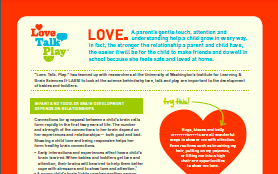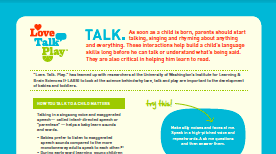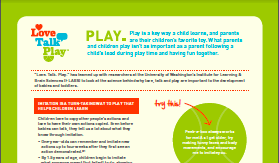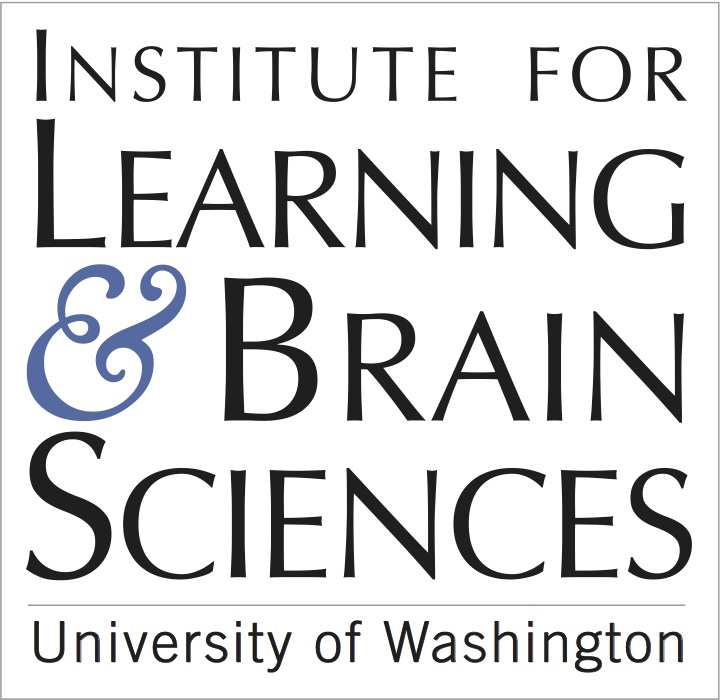A child’s early experiences shape his or her brain structure and cognition. “Love. Talk. Play.” has teamed up with researchers at the University of Washington’s Institute for Learning and Brain Sciences (I-LABS) to look at the science behind why love, talk and play are important to the development of babies and toddlers.
Love: Social interaction and imitative learning play an important role in early brain and behavioral development. Love is just as important as nutritious food to raise a healthy child. Your gentle touch, attention and understanding help your child grow in every way. In fact, the stronger your relationship is with your child, the easier it will be for her to make friends and do well in school because she feels safe and loved at home.
|

|
Talk: Children’s early language skills predict future reading abilities, and skills not developed early are difficult to remediate later on. As soon as your child is born, start talking, singing and rhyming about anything and everything. These interactions start building your child’s language skills long before he can talk or understand what’s being said. They’re also critical in helping him learn to read.
|

|
|
Play: Human cognition and innovation depends on memory, logic, mathematical reasoning, and the manipulation of physical tools and abstract symbols. Playing is not only fun; it’s also how your child learns. During play, she’s trying out new skills, using her imagination and creativity and learning about relationships with other people. She needs lots of opportunities every day to explore and enjoy the world around her. She wants you to join the fun because YOU are her favorite toy.
|

|







